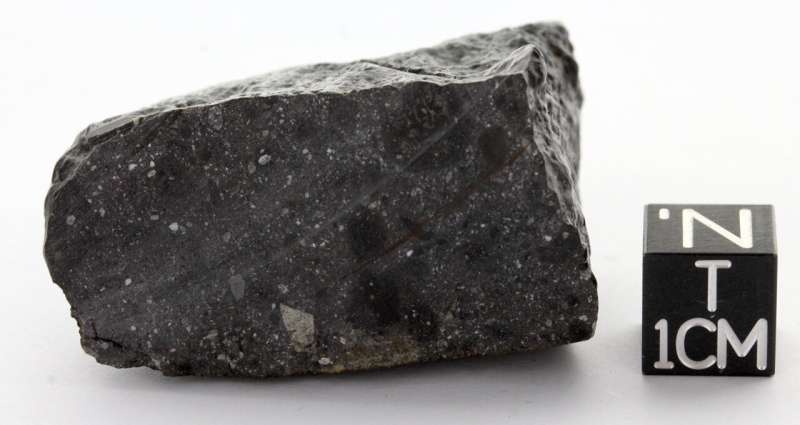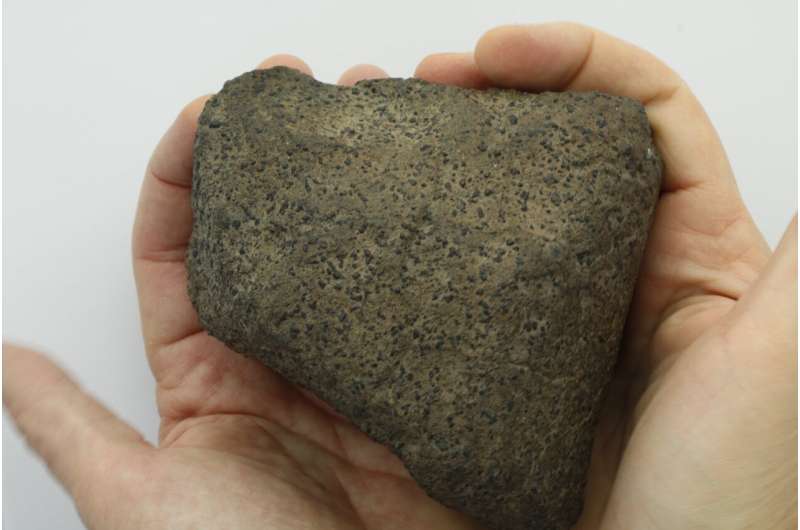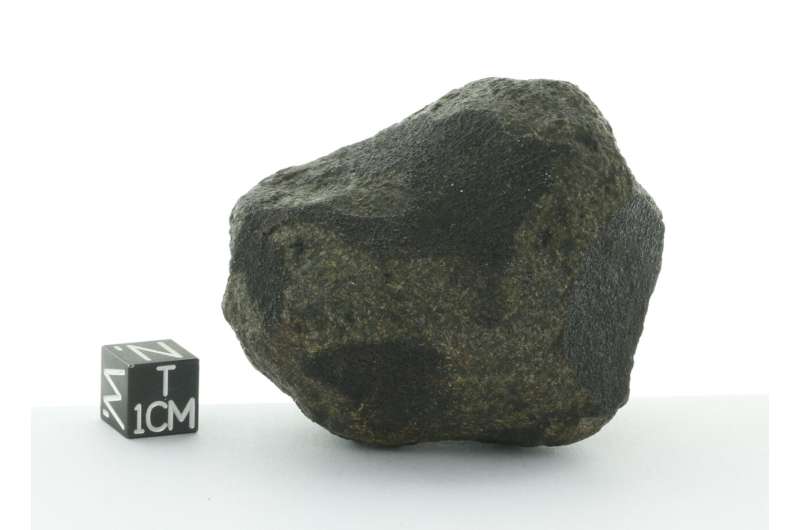November 17, 2022 report
Ancient global ocean on Mars may have come from carbon-rich chondrite meteorites from the outer solar system

A team of researchers at the University of Copenhagen's Center for Star and Planet Formation, working with colleagues from Université de Paris, ETH Zürich and the University of Bern, has found evidence suggesting that most of the water that made up an ancient global ocean on Mars came from carbon-rich chondrite meteorites from the outer solar system. The study is published in Science Advances.
Prior research has suggested that at one time, Mars was either mostly or entirely covered by a watery ocean, and that the water came from gases seeping from below the surface and liquifying as they cooled. In this new effort, the researchers suggest the water more likely came from another source—meteorites traveling from the outer solar system.
The researchers came to this conclusion after studying fragments flung from the surface of Mars after asteroid strikes, which made their way to Earth as meteorites. The researchers studied 31 of them, looking most specifically for chromium isotopic fingerprints. Chromium-54 does not occur naturally on Mars; thus, its presence in crust samples from Mars would indicate that the surface had been struck by material from somewhere else.
The researchers found enough of the material to estimate how many of the meteorites had crashed into Mars. And that, they note, allowed them to estimate how much water was carried to the planet, as well.

Prior research has shown that such meteorites are 10% water. That allowed them to calculate how much water was likely delivered to the planet—it was enough to cover the entire surface to a depth of 300 meters. This finding suggests that water-rich asteroids were the main source of water filling Mars' oceans. It also suggests that most of the water on other bodies in the solar system likely came from the outer solar system via meteorites as well.

More information: Ke Zhu et al, Late delivery of exotic chromium to the crust of Mars by water-rich carbonaceous asteroids, Science Advances (2022). DOI: 10.1126/sciadv.abp8415
Journal information: Science Advances
© 2022 Science X Network





















